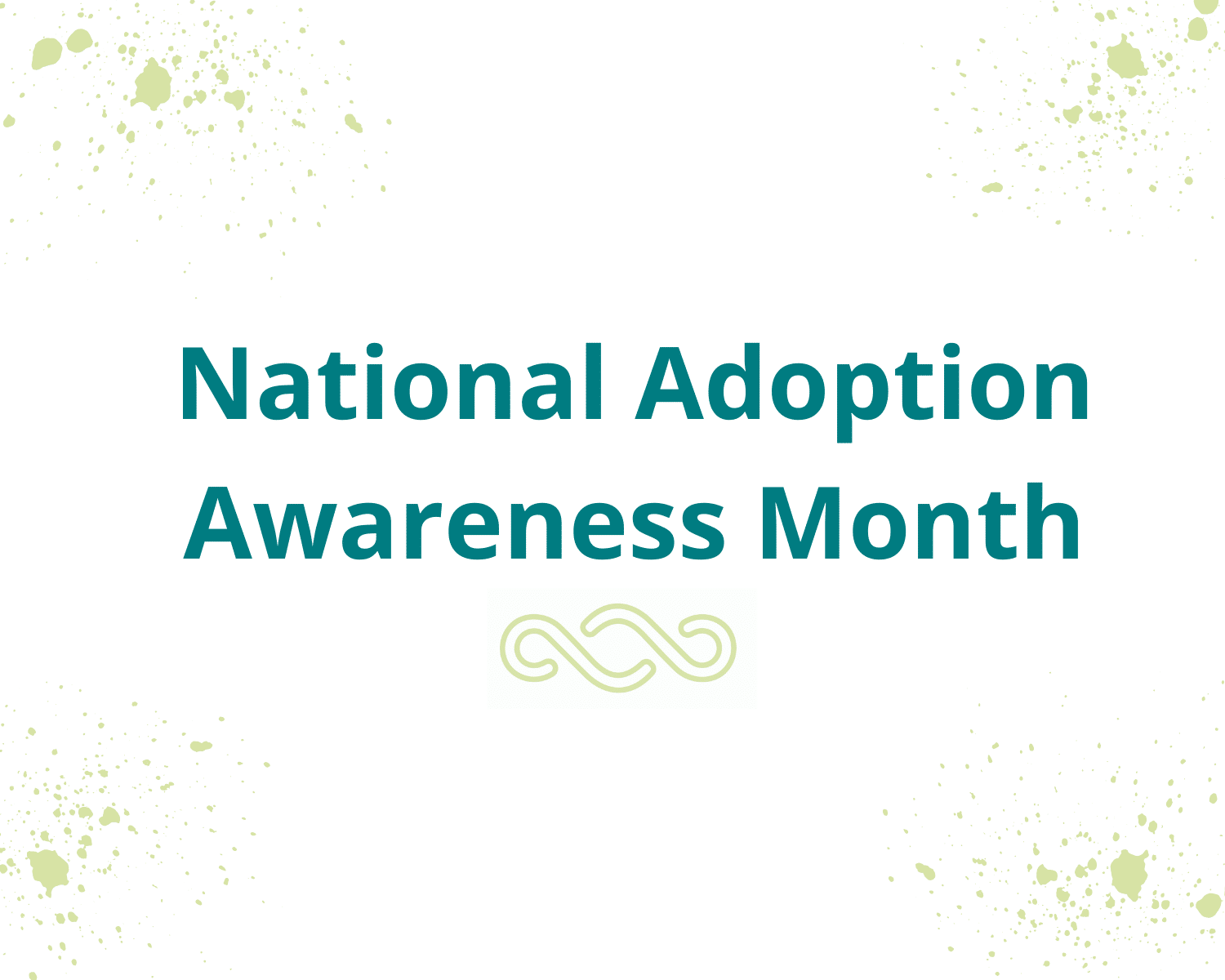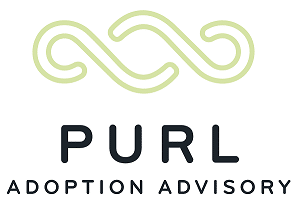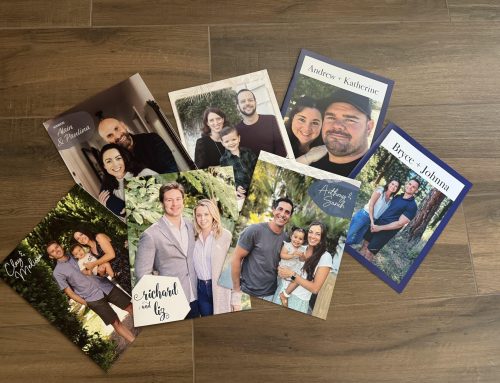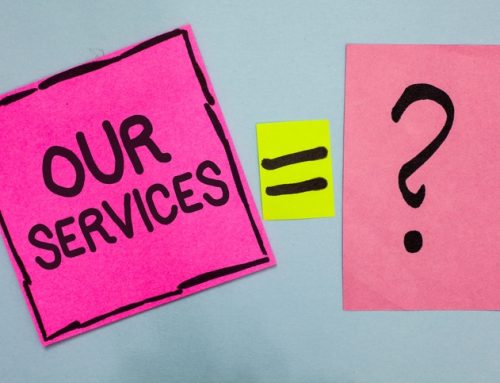
November is National Adoption Awareness Month. During the month of November we at Purl recognize this month by educating and trying to raise awareness of all facets of adoption. While every type of adoption is recognized during this month, the particular focus this month is to raise awareness about the urgent need for adoptive families for children and youth in foster care. The history of National Adoption Awareness Month dates back to 1976 when the Governor of Massachusetts announced the first Adoption Week. This idea grew in popularity and quickly spread nation wide. In 1995, President Clinton expanded the week to the entire month of November.
During the month of November, people across the nation raise awareness of adoption and hope that awareness of adoption encourages others to open their homes to children in foster care waiting for a forever home. Also, this month includes National Adoption Day, which is usually observed in courthouses nationwide, where thousands of adoptions are finalized. COVID has put a damper on some state and county events, but it appears many of these events are scheduled again for 2022.
Here are some ways you can recognize National Adoption Awareness Month:
-
Share your connections to adoption. Sharing your feelings about adoption (both positive and negative) and how it grew your family can help educate others about adoption. Just don’t forget if you’re an adoptive parent that you should do this while at the same time protecting your child’s story.
-
Celebrate your child’s heritage. There are many things adoptive parents can do to encourage awareness this month. Maybe it is retelling your adoption story to your child or making a point to read all the adoption books you have collected with your child. If your child through adoption is of a different heritage/nationality, maybe you cook a traditional dish with your child to celebrate his or her heritage. You can also play traditional games or activities and make holiday crafts to demonstrate appreciation for different cultures.
-
Educate yourself or the people around you about adoption. Continue learning about adoption by either reading books or watching movies related to adoption. I recently read American Baby, a book about the very difficult history of domestic infant adoption. There are many in the adoption community that will be using this month to educate about all aspects of adoption, from the perspective of the adoptee, the birth mom and the adoptive family (typically collectively called the adoption triad). We hope that you’ll use this month to learn from all three perspectives, and not just from adoption professionals and adoptive families who have dominated this space. We particularly recommend you learn from adult adoptees about their feelings on adoption. We believe this will at times their voices will make you uncomfortable if you are a prospective adoptive parent, but we feel it is essential to really understanding how your child through adoption might feel as they grow up, and ways to do things differently if you decide to proceed with adoption. Here are some adult adoptee accounts we recommend you follow and learn from this month:
- @growhealblossom
- @therapyredeemed
- @patrickintheworld
- @blackgirlwhitefamily
- @wreckageandwonder
- @hannahjacksonmatthews
- @amandawoolstonadoption
- @fereraswan
- @adoptionmosaic
- @adopteesconnect
- @ollyblvckgirl
- @adoptee_thoughts
- @adopteeson
- Follow along with us this November. Since we don’t typically operate in the foster care space, during November we will be offering a blog series looking at the domestic adoption process from start to finish, identifying resources, perspectives and ideas to educate and prepare families for adoption. We will be sharing both the positive and negative aspects of adoption, different from many professionals and adoptive parents who focus only on the positive narrative. Adoption begins from loss and there is trauma for every child, but there are usually beautiful parts to it as well. Our goal is to help adoptive parents recognize the complicated nature of adoption and be more prepared for it, so they can be the best parents they an be to their child.

November is National Adoption Awareness Month. During the month of November we at Purl recognize this month by educating and trying to raise awareness of all facets of adoption. While every type of adoption is recognized during this month, the particular focus this month is to raise awareness about the urgent need for adoptive families for children and youth in foster care. The history of National Adoption Awareness Month dates back to 1976 when the Governor of Massachusetts announced the first Adoption Week. This idea grew in popularity and quickly spread nation wide. In 1995, President Clinton expanded the week to the entire month of November.
During the month of November, people across the nation raise awareness of adoption and hope that awareness of adoption encourages others to open their homes to children in foster care waiting for a forever home. Also, this month includes National Adoption Day, which is usually observed in courthouses nationwide, where thousands of adoptions are finalized. COVID has put a damper on some state and county events, but it appears many of these events are scheduled again for 2022.
Here are some ways you can recognize National Adoption Awareness Month:
-
Share your connections to adoption. Sharing your feelings about adoption (both positive and negative) and how it grew your family can help educate others about adoption. Just don’t forget if you’re an adoptive parent that you should do this while at the same time protecting your child’s story.
-
Celebrate your child’s heritage. There are many things adoptive parents can do to encourage awareness this month. Maybe it is retelling your adoption story to your child or making a point to read all the adoption books you have collected with your child. If your child through adoption is of a different heritage/nationality, maybe you cook a traditional dish with your child to celebrate his or her heritage. You can also play traditional games or activities and make holiday crafts to demonstrate appreciation for different cultures.
-
Educate yourself or the people around you about adoption. Continue learning about adoption by either reading books or watching movies related to adoption. I recently read American Baby, a book about the very difficult history of domestic infant adoption. There are many in the adoption community that will be using this month to educate about all aspects of adoption, from the perspective of the adoptee, the birth mom and the adoptive family (typically collectively called the adoption triad). We hope that you’ll use this month to learn from all three perspectives, and not just from adoption professionals and adoptive families who have dominated this space. We particularly recommend you learn from adult adoptees about their feelings on adoption. We believe this will at times their voices will make you uncomfortable if you are a prospective adoptive parent, but we feel it is essential to really understanding how your child through adoption might feel as they grow up, and ways to do things differently if you decide to proceed with adoption. Here are some adult adoptee accounts we recommend you follow and learn from this month:
- @growhealblossom
- @therapyredeemed
- @patrickintheworld
- @blackgirlwhitefamily
- @wreckageandwonder
- @hannahjacksonmatthews
- @amandawoolstonadoption
- @fereraswan
- @adoptionmosaic
- @adopteesconnect
- @ollyblvckgirl
- @adoptee_thoughts
- @adopteeson
- Follow along with us this November. Since we don’t typically operate in the foster care space, during November we will be offering a blog series looking at the domestic adoption process from start to finish, identifying resources, perspectives and ideas to educate and prepare families for adoption. We will be sharing both the positive and negative aspects of adoption, different from many professionals and adoptive parents who focus only on the positive narrative. Adoption begins from loss and there is trauma for every child, but there are usually beautiful parts to it as well. Our goal is to help adoptive parents recognize the complicated nature of adoption and be more prepared for it, so they can be the best parents they an be to their child.



